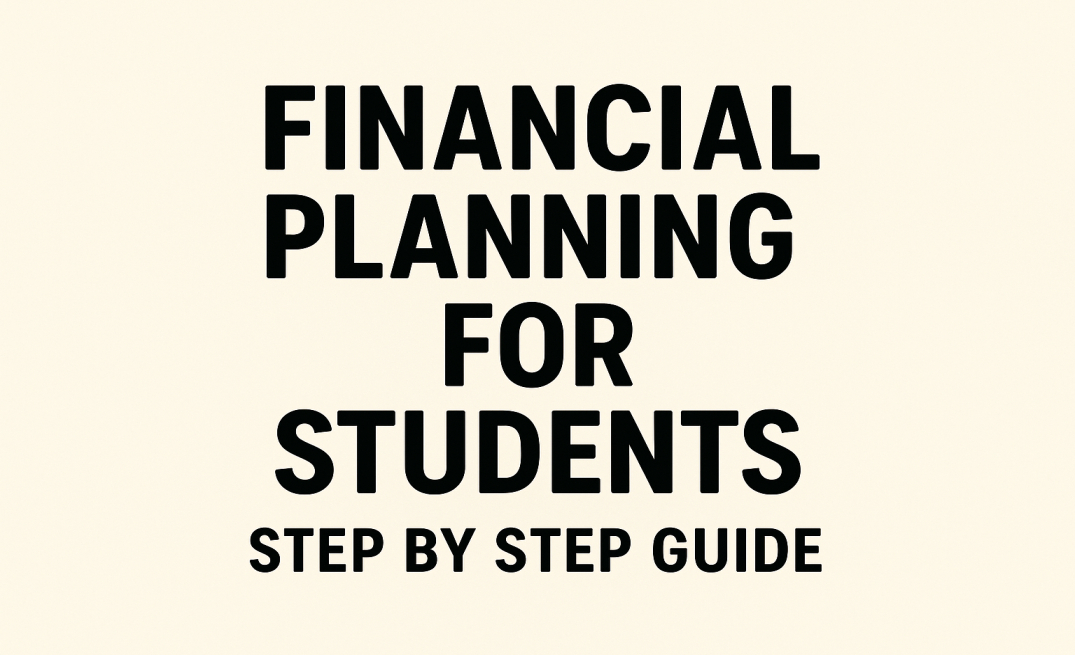Financial Planning for Students – Step by Step Guide, Full details 2025 updated
Financial Planning for Students – Step by Step Guide, Full details 2025 updated.
Introduction
Managing money as a student may seem challenging, especially with limited income and growing expenses. However, starting early with good financial habits can set you up for lifelong stability. With proper planning, you can balance studies, personal expenses, and savings without stress. This guide breaks down financial planning for students into clear, actionable steps.
Table of Contents
1. Understand Your Income and Expenses
The first step in financial planning is knowing how much money you have and where it goes. Your income might come from pocket money, part-time jobs, scholarships, or internships.
Action Steps:
- List all your income sources.
- Track your monthly expenses, such as food, travel, books, and entertainment.
- Use free budgeting apps like Google Sheets, Money Manager, or Walnut.
2. Create a Realistic Budget
A budget helps you avoid overspending and ensures you save regularly.
Action Steps:
- Apply the 50/30/20 rule: 50% for needs, 30% for wants, 20% for savings or investments.
- Allocate funds for fixed costs (fees, rent) and flexible costs (movies, dining out).
- Review and adjust your budget monthly.
3. Build an Emergency Fund
Emergencies can happen anytime, medical expenses, sudden travel, or laptop repairs. An emergency fund ensures you don’t borrow at high interest.
Action Steps:
- Aim to save at least ₹5,000–₹10,000 as a starter emergency fund.
- Keep your money secure in a bank account or a reliable online wallet.
4. Learn to Save Consistently
Even small savings can grow over time.
Action Steps:
- Automate savings by transferring money to a separate account at the start of each month.
- Use Recurring Deposits (RD) or a SIP in mutual funds for disciplined saving.
5. Avoid Unnecessary Debt
Credit cards, buy-now-pay-later schemes, and loans may look tempting but can trap you in debt.
Action Steps:
- Only borrow if absolutely necessary.
- Pay your credit card balance completely to avoid extra charges.
- Avoid taking loans for non-essential purchases.
6. Learn the Basics of Investing
If you have surplus savings, start learning about investments early.
Action Steps:
- Begin with safe options like Fixed Deposits (FDs) or mutual funds.
- Learn about stock markets, but invest only after research.
- Avoid following random tips from social media.
7. Focus on Skill Development
Growing your earning power is a key step in managing your finances well.
Action Steps:
- Invest in courses, certifications, or skill-building workshops.
- Consider freelancing or part-time jobs to earn extra income.
8. Review Your Financial Plan Regularly
Your income, spending habits, and financial goals will evolve as time goes on.
Action Steps:
- Review your plan every 3–6 months.
- Adjust savings and investments as needed.
Conclusion
Financial planning for students is not about restricting yourself, it’s about making smart decisions with your money. By tracking expenses, saving regularly, avoiding debt, and learning about investments, you can build a strong financial foundation before you even graduate. Remember, Small actions today can create big results in the future.
Learn more about Finance
![]()




